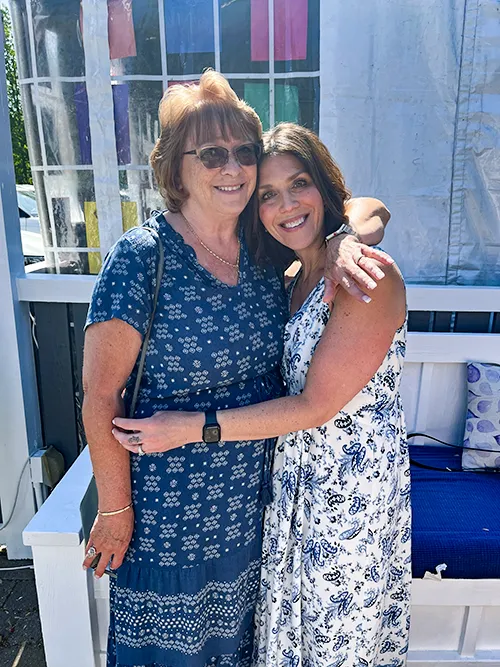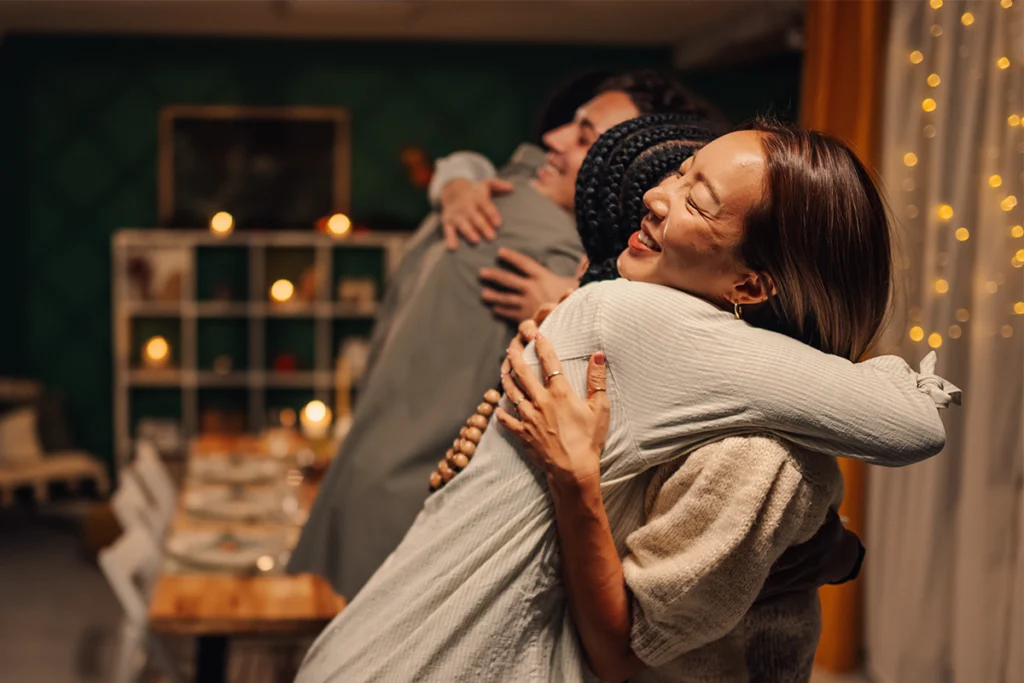The Circle of Care for People Facing Cancer

When someone we care about is diagnosed with cancer, our lives change and how we define ourselves shifts. For many, identifying as a "caregiver" feels natural and obvious. But for others, the label can feel confusing, or even uncomfortable, especially if we’re not living under the same roof or directly responsible for daily care.
From my own experience, I didn’t feel like I could label myself a caregiver during my mom’s cancer journey. I was an adult living in my own home with my husband and children when she was diagnosed. Yes, I attended appointments with her and my dad, called every day, and tried to be present whenever she needed me. However, I never felt like I was doing enough. It wasn’t until much later that I realized that those acts were caregiving.
Caregiving isn’t just about physical proximity. It’s about showing up, however you can, with love, consistency, and support. Caregivers aren’t just family members, either. Caregivers can be friends, neighbors, colleagues, and others who step in with compassion and a willingness to help shoulder the weight of a cancer diagnosis.
I’ve learned through my personal and professional experiences that caregiving is not one-size-fits-all. It takes many forms and includes a wide range of people whose support and love are vital to the person going through cancer. I’ve also learned that the need for support doesn’t end when treatment does. In fact, post-treatment survivorship can bring a whole new set of challenges, from lingering side effects to emotional processing and fears about recurrence. It’s during this time that the circle of care remains just as important, if not more so.
Redefining the Word “Caregiver”
Like me, many of us hesitate to claim the title of “caregiver” unless we’re providing daily, hands-on care. But caregiving happens along a spectrum. It’s not a single role. A caregiver is anyone who provides emotional, logistical, physical, or spiritual support to someone facing cancer. Whether you’re caring for daily physical and emotional needs, coordinating appointments, or holding space for conversation, you are a caregiver.
The Long-Distance Caregiver
Being far away doesn’t make you any less of a caregiver. Whether you're managing logistics from across the country, helping with insurance paperwork, flying in for important appointments, or simply picking up the phone to offer love and encouragement, your support matters deeply.
It’s not uncommon for long-distance caregivers to feel guilty, helpless, or unsure if they’re doing enough. But your presence is caregiving. You’re a critical part of the circle of care.
The Friend or Neighbor
You might be the one who shows up with a casserole, offers to walk the dog, or texts daily to check in. You might take a friend to treatment or simply sit with them while they process difficult news.
These acts of kindness are more than thoughtful gestures. They provide relief, comfort, and human connection. Friends, neighbors, and others we consider our chosen family play irreplaceable roles in the circle of care, even if they don’t always use the term "caregiver" to describe themselves.
The Coworker
Caregiving shows up at work, too. Maybe you’re covering extra shifts or taking on tasks to help a colleague who’s dealing with cancer in their family. Or perhaps you’re offering emotional support, an listening ear, or advocating for flexibility and understanding in the workplace.
You may not see yourself as a “caregiver.” But your compassion, patience, and support are helping someone hold it together. That’s part of the circle of care, too.
The Circle of Care Is Bigger Than We Think
Every role matters. Every gesture of support, large or small, is part of a larger circle of care that surrounds people experiencing cancer.
At Cancer Hope Network, we believe in honoring all forms of caregiving. Our trained peer mentors include caregivers from all walks of life— people who’ve supported their loved ones up close, as well as from far away. They understand that caregiving doesn’t look the same for everyone, but it always matters.
If you're supporting someone with cancer, please know that you're not alone. You are part of a circle of caregiving and your presence matters more than you know.
You don’t have to call yourself a caregiver to be one. You just have to care and show up.
Get Help. Give Help.
– Beth Blakey
